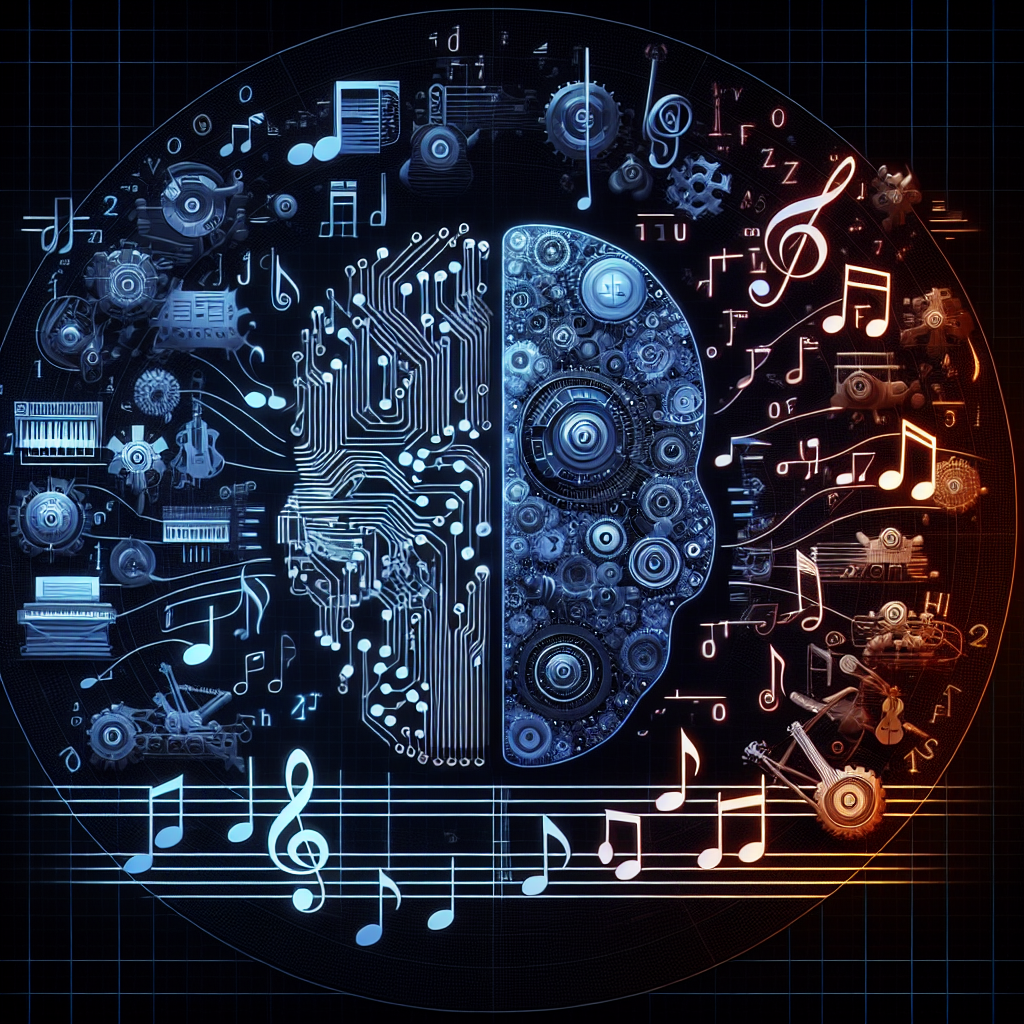In recent years, artificial intelligence (AI) has been making its mark on various industries, including music criticism. AI technology is transforming the way music is reviewed and evaluated, offering new perspectives and insights that were previously unattainable. In this article, we will explore how AI is changing the landscape of music criticism and its implications for the industry.
AI and Music Criticism: How It Works
AI technology works by analyzing vast amounts of data to identify patterns and trends. In the context of music criticism, AI algorithms can be trained to analyze music in various ways, such as identifying genres, detecting emotional content, and assessing technical aspects like rhythm and melody. By analyzing these factors, AI can provide valuable insights into the quality and appeal of a piece of music.
One example of AI technology in action is the use of natural language processing (NLP) to analyze music reviews. NLP algorithms can scan through thousands of music reviews to identify common themes and sentiments, allowing critics to gain a better understanding of the reception of a particular album or artist. This can help music critics to identify trends and patterns in music criticism, allowing them to make more informed judgments about the quality of a piece of music.
Another way AI is transforming music criticism is through the use of machine learning algorithms to predict the success of a song or album. By analyzing factors such as tempo, key, and lyrics, AI can predict the likelihood of a song becoming a hit. This can help music critics to identify emerging trends in music and make more accurate predictions about the commercial success of a piece of music.
AI technology is also being used to create new forms of music criticism, such as algorithmically generated reviews. These reviews are created by AI algorithms that analyze the technical and emotional aspects of a piece of music to generate a review that mimics the style and tone of a human critic. While these reviews may lack the nuance and insight of a human critic, they can provide a valuable alternative perspective on a piece of music.
Implications for the Music Industry
The rise of AI in music criticism has significant implications for the music industry. For artists, AI technology can provide valuable feedback on their music, helping them to identify areas for improvement and refine their sound. AI can also help artists to reach new audiences by identifying trends and preferences in music consumption.
For music critics, AI technology can enhance the quality and efficiency of music reviews. By automating the analysis of music, AI can free up critics to focus on more in-depth analysis and interpretation, leading to more insightful and engaging reviews. AI can also help critics to identify emerging trends in music and stay ahead of the curve in a rapidly changing industry.
However, the rise of AI in music criticism also raises questions about the role of human critics in the industry. Will AI algorithms eventually replace human critics altogether, or will there always be a place for human judgment and interpretation in music criticism? While AI technology has the potential to enhance the quality and efficiency of music reviews, it is unlikely to replace the unique insights and perspectives that human critics bring to the table.
FAQs
Q: Will AI technology replace human music critics?
A: While AI technology has the potential to enhance the quality and efficiency of music reviews, it is unlikely to replace human critics altogether. Human critics bring unique insights and perspectives to music criticism that AI algorithms cannot replicate.
Q: How can AI technology benefit artists in the music industry?
A: AI technology can benefit artists by providing valuable feedback on their music, helping them to identify areas for improvement and refine their sound. AI can also help artists to reach new audiences by identifying trends and preferences in music consumption.
Q: What are some examples of AI technology in music criticism?
A: Examples of AI technology in music criticism include the use of natural language processing (NLP) to analyze music reviews, machine learning algorithms to predict the success of a song or album, and algorithmically generated reviews created by AI algorithms.
Q: What are the implications of AI technology for the music industry?
A: The rise of AI in music criticism has significant implications for the music industry, including enhancing the quality and efficiency of music reviews, helping artists to refine their sound, and raising questions about the role of human critics in the industry.
In conclusion, AI technology is transforming the landscape of music criticism, offering new insights and perspectives that were previously unattainable. While AI has the potential to enhance the quality and efficiency of music reviews, it is unlikely to replace human critics altogether. As the music industry continues to evolve, the role of AI in music criticism will continue to be a topic of debate and exploration.

